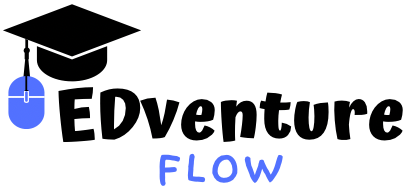Understanding Personalized Learning
Personalized learning refers to educational approaches that tailor instruction and experiences to meet the individual needs, preferences, and goals of each learner. This method recognizes that every individual possesses unique strengths, weaknesses, interests, and learning styles, which can significantly impact their educational journey. By focusing on these distinctions, personalized learning aims to create a more effective and engaging educational experience, ultimately leading to higher levels of achievement and satisfaction.
One of the fundamental components of personalized learning is learner engagement. When learners have a say in their educational paths, they are more likely to participate actively in the learning process. This engagement can manifest through various avenues, including project-based learning, choice in assignments, and opportunities for self-directed study. Learner autonomy is another critical aspect; this concept empowers students to take control of their learning, setting personal goals and determining the resources they need to achieve them. This empowerment fosters a sense of ownership that can significantly enhance motivation and commitment.
Adaptability is also crucial in personalized learning. As learners progress through their educational experiences, their needs may evolve. A personalized learning plan should be flexible enough to accommodate shifts in interests, challenges, and pace. This adaptability ensures that students receive the support they require at different stages of their learning journey, enhancing their chances of success.
Real-world examples illustrate the impact of personalized learning. Numerous schools and organizations have adopted personalized learning strategies, resulting in increased student engagement and improved outcomes. For instance, programs that implement technology-driven assessments can better inform educators about each student’s progress, allowing for timely interventions tailored to specific areas needing improvement. Thus, personalized learning emerges as a pivotal approach in meeting educational and professional goals.
Setting Clear and Achievable Goals
Establishing a robust foundation for a personalized learning plan begins with setting clear and achievable goals. The SMART criteria—specific, measurable, achievable, relevant, and time-bound—serve as a guiding framework to ensure that goals are well-defined and attainable. Specific goals clarify exactly what one aims to achieve; for instance, instead of stating, “I want to learn a new language,” a specific goal would be, “I want to achieve conversational proficiency in Spanish.” This precision helps in focusing efforts and resources effectively.
Measurable goals allow for tracking progress. Instead of a vague target, measurable objectives permit learners to gauge their advancement over time. A goal like “I will read three Spanish novels per quarter” quantifies the learning process, making it easier to assess whether one is on track. Achievability is equally vital; setting goals that are realistically attainable fosters a sense of accomplishment and prevents discouragement. For example, aspiring to converse with a native speaker within three months of starting might be perceived as overly ambitious for a beginner.
The relevance of goals cannot be understated. Individuals should align their objectives with their broader aspirations, ensuring that each goal serves a purpose. For example, if someone aspires to work in international business, learning a foreign language becomes an integral part of their career development. Lastly, time-bound goals encourage timely completion. Setting deadlines, such as “I will complete an introductory Spanish course in two months,” instills a sense of urgency and commitment.
By breaking larger ambitions into smaller, manageable short-term objectives, learners can maintain motivation and accountability. Implementing regular check-ins—such as weekly reflections or progress assessments—helps stay connected to the desired outcomes. Ultimately, well-structured goals not only guide the learning journey but also provide motivation to strive toward achieving personal and professional milestones.
Creating Your Personalized Learning Pathway
Developing a personalized learning pathway is a crucial step in achieving educational and professional goals effectively. This structured approach begins with a thorough assessment of your current skills and knowledge. This self-evaluation helps identify strengths and gaps that need to be addressed. It is essential to take an honest look at your skills portfolio and reflect on areas where further development is required. This clarity allows for a more targeted learning experience.
Once you have assessed your current competencies, the next step is selecting resources that will best support your learning objectives. Consider a variety of materials such as online courses, books, podcasts, and mentors who can provide guidance. The choice of resources should align with your learning preferences and be relevant to your goals. Incorporating diverse materials will not only enrich your learning experience but also maintain your motivation.
Determining the right format for your learning is equally important. You can choose between self-paced learning, which offers flexibility, or opt for group learning environments that encourage collaboration. Assess whether online platforms, which offer convenience, or in-person sessions that provide interpersonal interaction are more beneficial for you. A mixed approach often yields the best outcomes, catering to different facets of your learning style.
Flexibility is paramount in a personalized learning pathway. Regular reviews of your progress are essential to ensure that the learning plan remains aligned with evolving goals and interests. Additionally, incorporating various learning methods such as visual, auditory, and kinesthetic strategies can significantly enhance retention and understanding of the material. This multifaceted approach allows for a richer learning experience while accommodating different learning preferences.
Monitoring Progress and Adjusting Your Plan
Monitoring progress is a crucial element in the journey of implementing a personalized learning plan. By regularly assessing your advancement, you can ensure that your strategies are effective in meeting your educational or professional objectives. Setting measurable goals will aid in tracking your achievements. Specific metrics can include completion of tasks, improvement in skills, or progression through various learning modules. This structured approach to evaluation not only provides tangible evidence of your growth but also highlights areas needing further attention.
Various assessment methods can be employed to evaluate your progress. Self-assessments offer an opportunity for reflection, allowing you to analyze what has been effective and what may require redesign. Peer feedback can also be invaluable, as discussions with colleagues or mentors can provide fresh insights and constructive criticism on your chosen strategies. Additionally, utilizing digital tools and platforms that facilitate tracking can streamline the assessment process. These applications often feature analytics that provide real-time updates on your achievements and areas needing improvement.
Setting up regular reflection points is another important aspect of monitoring your personalized learning plan. Weekly or monthly check-ins not only keep you accountable but also encourage you to adapt your plan to better fit your evolving needs. Flexibility is imperative, as shifting circumstances, new opportunities, or unforeseen challenges may necessitate recalibrating your goals. As you encounter these situations, using a critical lens to evaluate your learning experiences will position you for continuous improvement.
Lastly, achieving milestones, whether large or small, warrants recognition and celebration. Acknowledging your accomplishments fosters motivation and reinforces a positive learning experience. By celebrating progress and remaining adaptable to changes, you can effectively refine your personalized learning plan and maximize your potential in 2025 and beyond.
For additional insights and resources on online learning, we invite you to explore our other articles on Edventure Flow.

